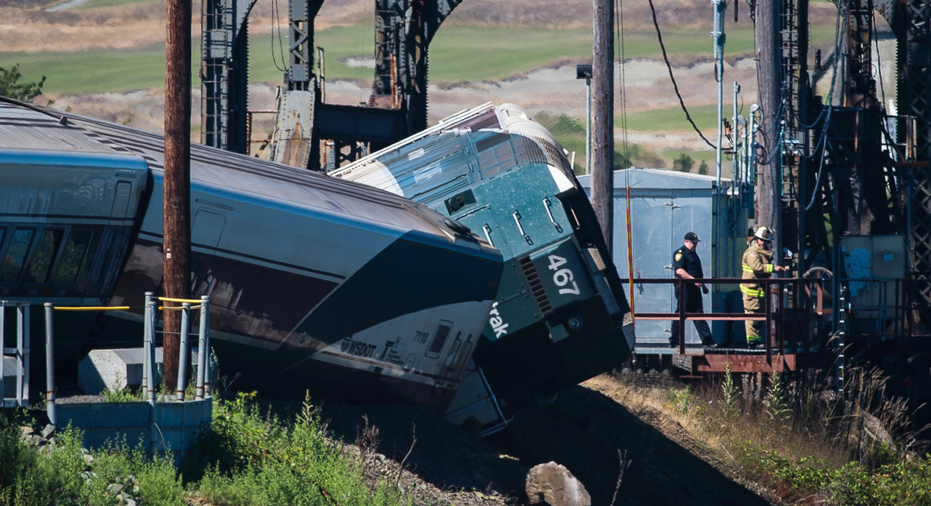High speed caused Amtrak derailment along Washington coast

SEATTLE – An engineer was driving an Amtrak passenger train too fast in Washington state on Sunday and caused it to derail as it headed north, officials said Thursday.
Amtrak spokeswoman Vernae Graham said an investigation found that the train failed to slow down to the 40 mph (64 kph) speed limit while approaching the Chambers Bay drawbridge, about 45 miles (73 kilometers) south of Seattle.
The excessive speed activated a special "derail switch" that's designed to avoid a catastrophe if the drawbridge is open as a train approaches, she said.
That sent the locomotive and baggage car and four passenger cars off the track, she said. Eight passenger cars and the rear locomotive remained upright on the tracks.
Some of the 267 passengers suffered only minor injuries in the derailment in the town of Steilacoom. Some of the injured passengers were treated at a local hospital and released.
After investigators determined the derailment was caused by human error, the train's engineer was suspended, Graham said.
"The safety of our passengers and employees remains our number one priority," she said.
BNSF Railroad, which owns the tracks, declined to comment on the investigation's findings, said railroad spokesman Gus Melonas. Melonas did say a BNSF bridge employee saw the approaching train and jumped off the bridge to the bank below, sustaining minor injuries.
The Amtrak Cascades 506 runs between the Eugene-Springfield metro area in Oregon and Vancouver, British Columbia.
Once the damaged cars were moved off the tracks, Amtrak and BNSF resumed operations.



















